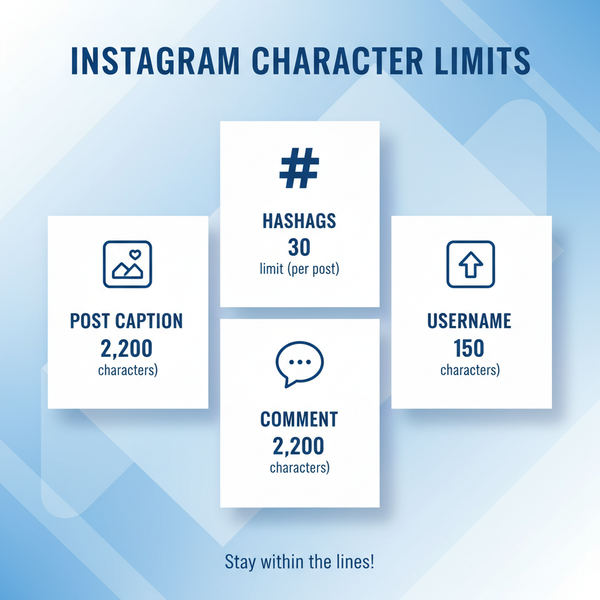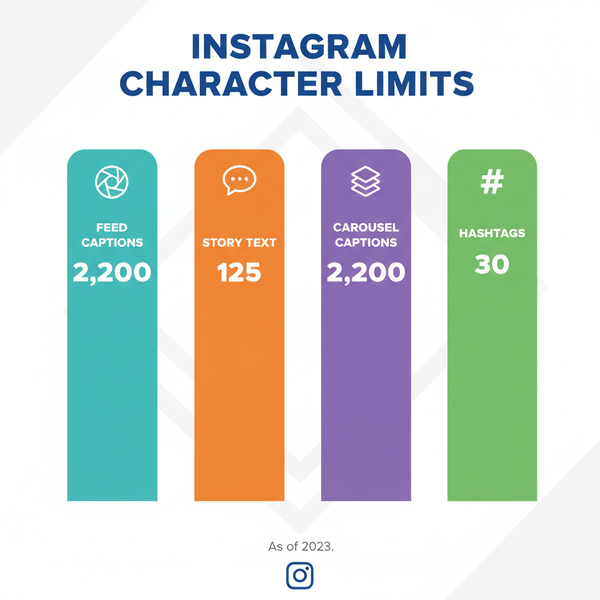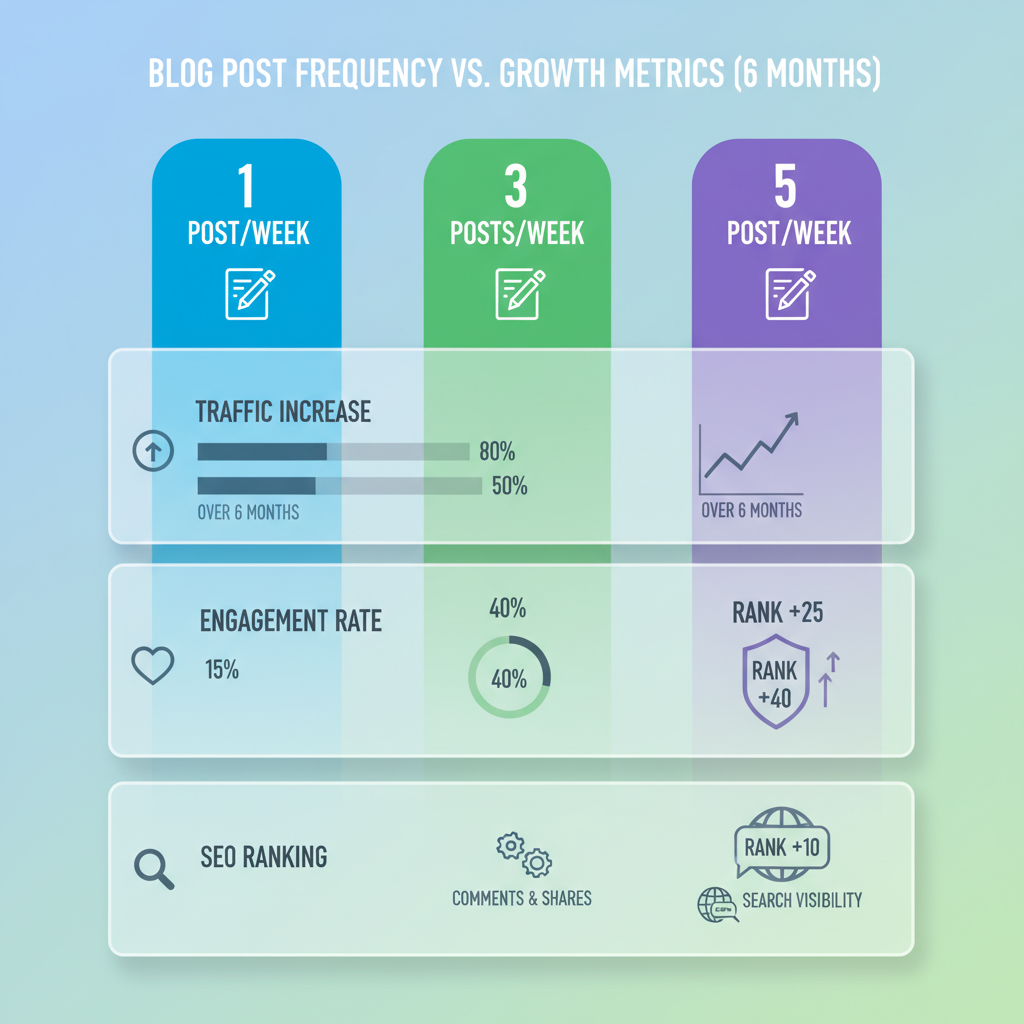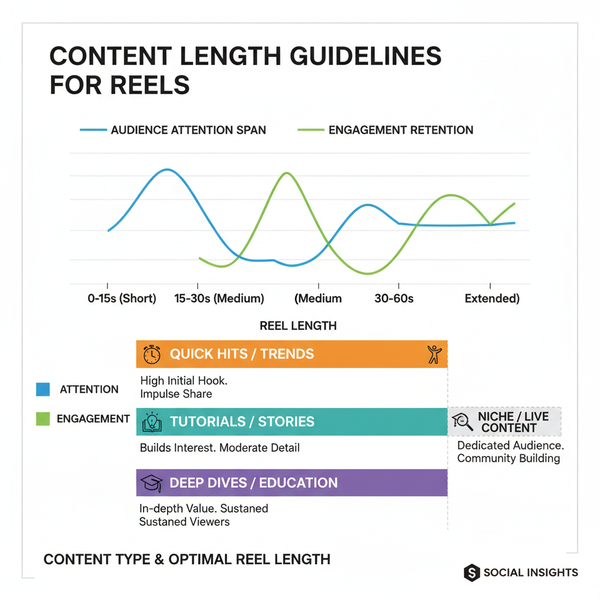How to Make a Poster on Facebook Step by Step Guide
Learn how to design a Facebook poster step-by-step, from choosing dimensions and tools to creating engaging layouts that drive social engagement.
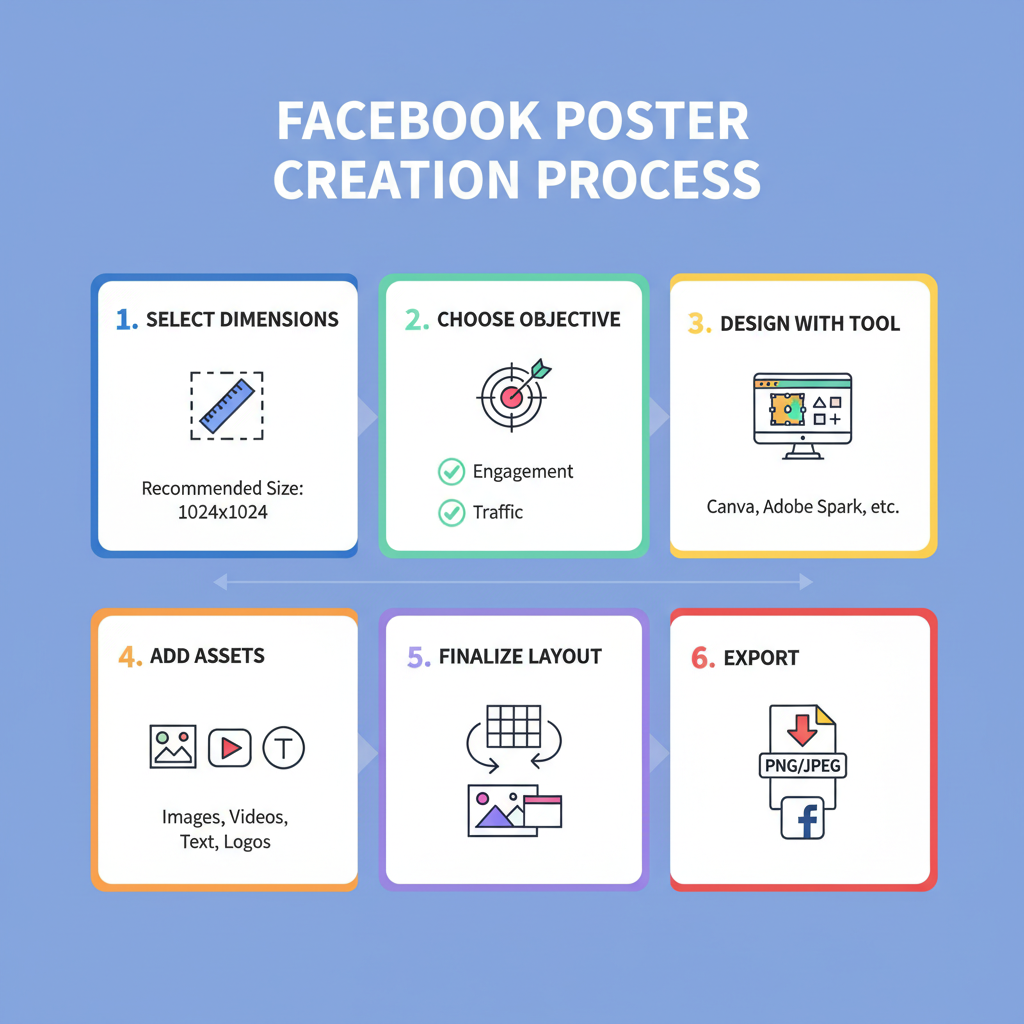
How to Make a Poster on Facebook: Step-by-Step Guide
Creating an eye-catching Facebook poster is a powerful, cost-effective way to promote events, products, or awareness campaigns. If you’ve been searching for how to make a poster on Facebook, this step-by-step guide will walk you through every key stage — from understanding Facebook image specs to analyzing your post’s performance.
Whether you’re a business owner, marketer, or hobbyist, using the right strategy ensures your poster stands out in busy social feeds and drives engagement.

---
Understand Facebook’s Image Dimensions and Aspect Ratios
Before you start designing, it’s essential to format your poster correctly. Facebook optimizes images differently depending on the placement, so knowing the exact dimensions and aspect ratios is key.
Recommended Specs for Feed Posters:
- Image Format: JPG or PNG
- Dimensions: 1200 x 630 pixels (shared link images) or 1080 x 1080 pixels (square)
- Aspect Ratio: Best ratios are 1.91:1 (landscape) or 1:1 (square)
- Minimum Width: 600 pixels
| Placement | Recommended Size | Aspect Ratio |
|---|---|---|
| Facebook News Feed | 1080 x 1080 px | 1:1 |
| Facebook Event Cover | 1920 x 1005 px | 1.91:1 |
| Facebook Page Cover | 820 x 360 px | 2.28:1 |
Tip: Always design with mobile in mind, as most Facebook users browse on smartphones.
---
Choose the Objective for Your Poster
Ask yourself: What do I want this poster to achieve?
Popular objectives:
- Promote an event — highlight date, time, and venue prominently.
- Launch a product — feature product images with clear benefits.
- Raise awareness — build emotional connection through visuals and statistics.
Your overall objective influences design choices, messaging, and calls-to-action (CTA).
---
Select a Design Tool Suited for Facebook Graphics
Several online tools make Facebook poster creation simple:
- Canva – Beginner-friendly with ready-made Facebook templates.
- Adobe Express – Advanced customization and brand integration tools.
- Figma – Collaborative, design-driven functionality.
All offer:
- Preset dimensions for Facebook.
- Simplified exporting.
- Typography and layout tools.
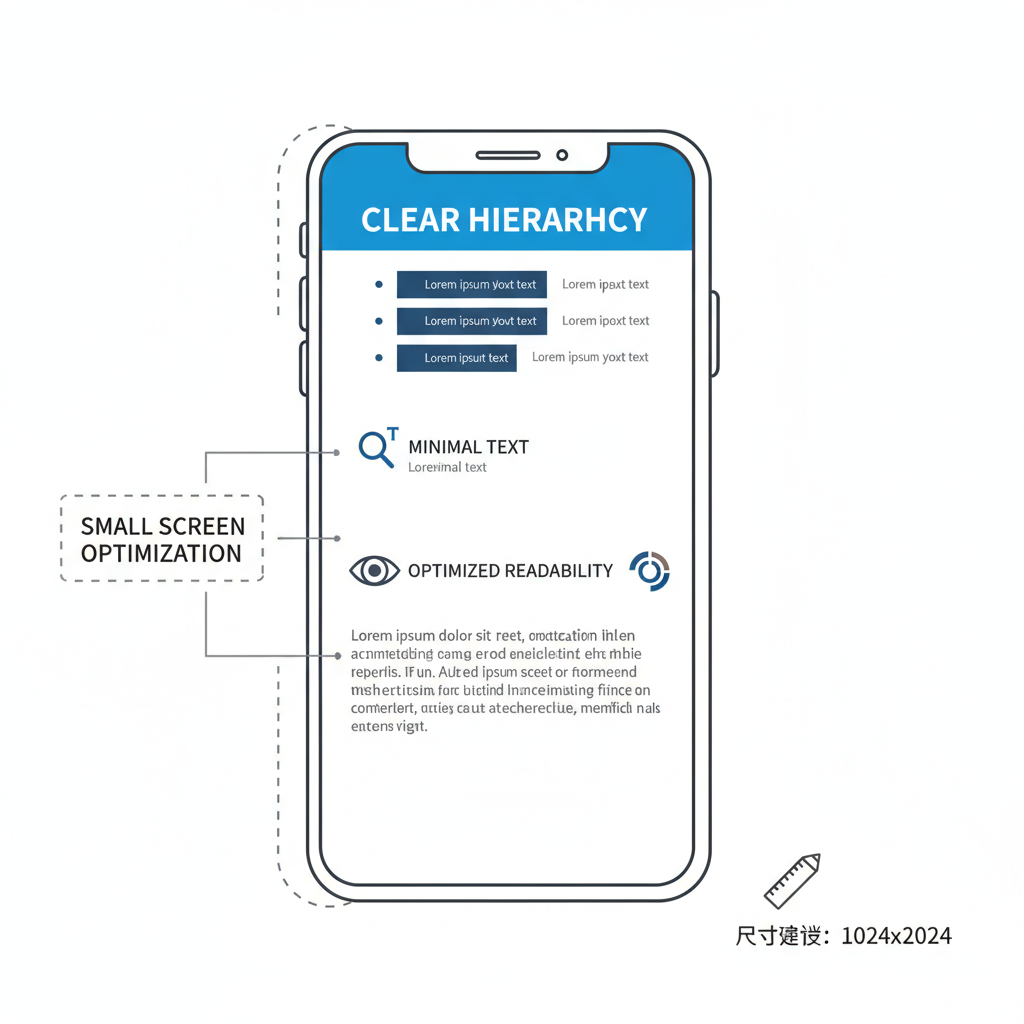
Tip: Select the tool that aligns with your design skill level and creative needs.
---
Gather High-Quality Images, Brand Assets, and Copy
Before you begin:
- High-resolution photos relevant to your topic.
- Transparent PNG logos.
- Brand colors defined by HEX or RGB.
- Engaging copy, including headline and CTA.
Authenticity matters: avoid generic stock images to boost trust and engagement.
---
Design the Poster Layout with Clear Hierarchy and Typography
When building your layout:
- Visual hierarchy — make your headline the most dominant element, followed by compelling imagery.
- Typography pairing — use no more than two complementary fonts.
- Balance — evenly space elements; steer clear of clutter.
Example HTML/CSS for text hierarchy:
Main headline
Subheadline
Supporting text goes here...---
Ensure Mobile-First Readability and Minimal Text
Despite the old “20% text rule” for ads, the principle remains: less text is more effective.
Guidelines:
- Maintain legibility at small sizes.
- Use strong contrast between text and background.
- Keep key text centered to avoid cropping.
---
Export in Correct Resolution and File Format
When exporting for Facebook:
- PNG for graphics/text clarity, JPG for photographic posters.
- Resolution: 72 DPI (web standard).
- Keep file size under 1 MB for faster uploading.
Store exports in a clearly labeled content folder to simplify workflow.
---
Create a New Facebook Post and Upload the Poster Image
Steps to publish:
- Navigate to your Facebook Page or profile.
- Click Create Post.
- Select Photo/Video option.
- Upload your poster file.
---
Add Engaging Caption and Relevant Hashtags
Effective captions:
- Add event or product context.
- Use a direct CTA like “Register now!” or “Shop the collection.”
- Apply relevant hashtags for visibility:
- `#EventPromo #NewProductLaunch #AwarenessCampaign`
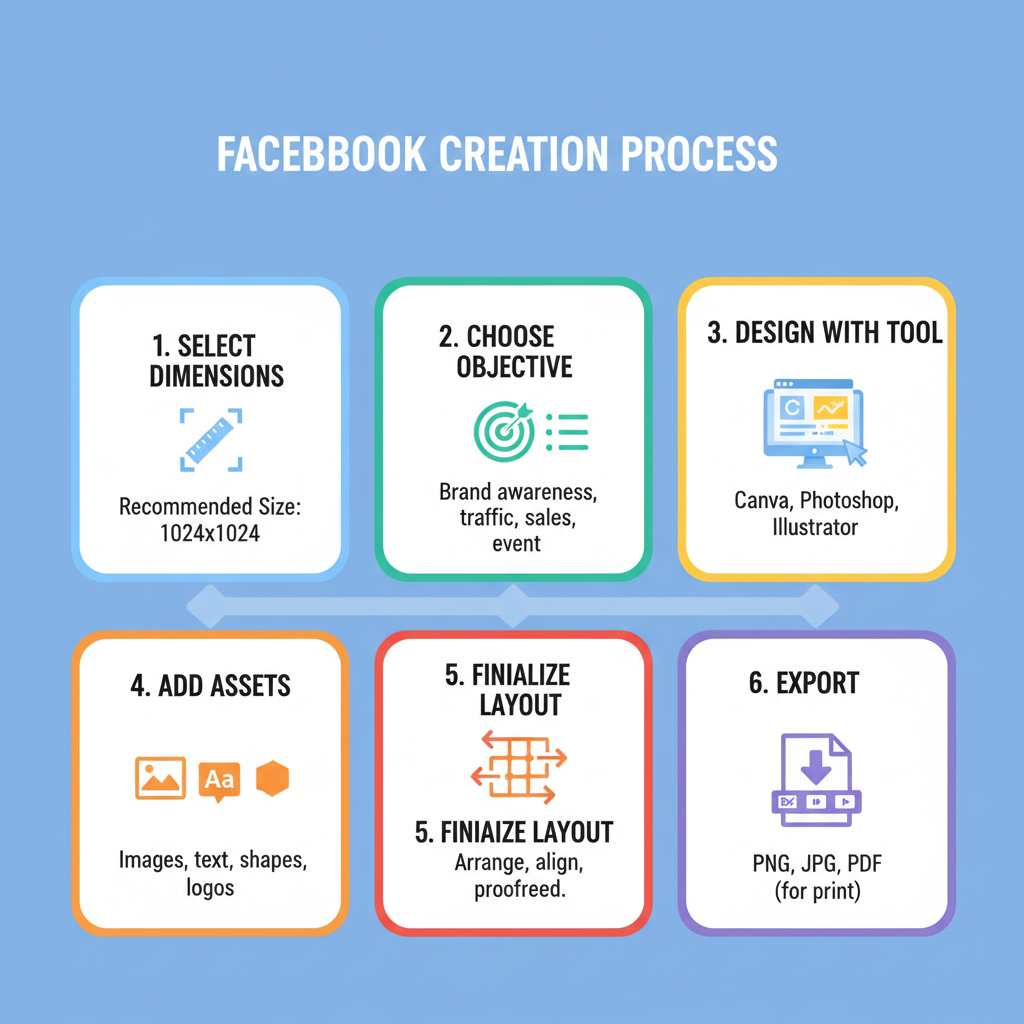
---
Tag Locations, Pages, or People to Increase Visibility
Tagging:
- Event venues.
- Partner brands.
- Influencers or team members.
This broadens reach and builds credibility.
---
Use Facebook’s Scheduling Tool to Post at Optimal Engagement Times
Typical optimal times:
- Weekdays: 1–3 PM local time.
- Weekends: 9–11 AM local time.
Schedule posts ahead for consistent publishing.
---
Boost Poster Reach with Targeted Facebook Ads or Event Promotions
Options:
- Boosted posts — quick setup for small campaigns.
- Ads Manager campaigns — detailed control over targeting and budget.
- Event promotion — ideal for official Facebook events.
Target precisely by audience demographics, location, and interests.
---
Monitor Insights to Measure Poster Engagement and Conversion
Metrics to track:
- Reach — total viewers.
- Engagement — likes, comments, shares.
- CTR — link clicks from the post.
- Conversions — registrations or sales.
Leverage Facebook Insights for visual charts and report downloads.
---
Iterate Future Posters Based on Analytics Feedback
Refine your creative process using data:
- Adjust headlines or images.
- Experiment with new color schemes.
- Test different posting times.
Continuous iteration keeps your Facebook content fresh and effective.
---
Final Thoughts
You now have a detailed, actionable method for how to make a poster on Facebook, from mastering image specs to optimizing for engagement analytics.
With strategic visuals, compelling captions, and data-driven refinement, your Facebook posters can reach wider audiences, attract more clicks, and achieve your campaign goals. Start applying these steps today and watch your social impact grow!

